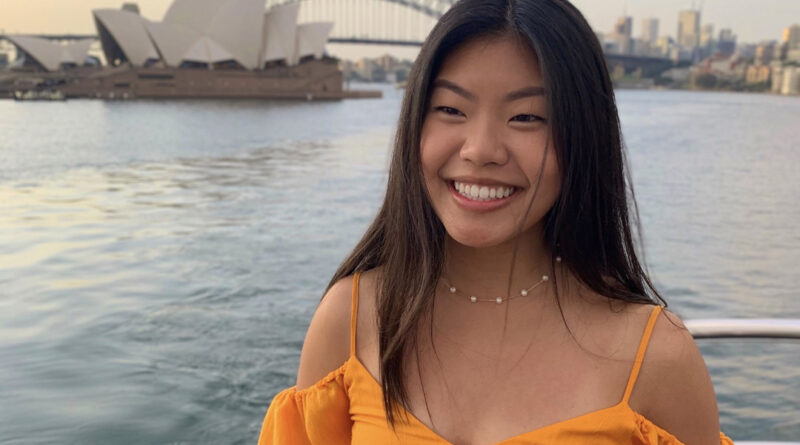By Mira Baum
Dear Brothers and Sisters,
I am scared. I fear your judgment. I am afraid that my article will not resonate with you and that my words will fail to encapsulate the struggles of Asian Americans today.
As both a Jewish woman and a person of color, I have experienced the trauma of being overtly accepted but privately invalidated since I was a child. As a result, I have always tried to convince myself that I do not experience racism in the Jewish community; but that is far from true.
So instead of writing an article, I decided to write you a letter that presents my truth, my experiences and the pain I’ve endured as an Asian Jew.
Although I hate to face it, too, racism exists in the Jewish community.
At the age of six years old, my classmates would pull back their eyes and exclaim, “Mira, look! I look like you!” By age eight, I was accustomed to boys approaching me and saying, “Ni hao,” to me nearly every day during recess.
My high performance in STEM activities were attributed to my race instead of my work ethic — “Of course you got an ‘A,’ it’s in your blood.” While I babysat children as an 18-year-old, I was referred to as a “pretty girl for an Asian” by a Jewish mother describing me to her Orthodox sister.
As a freshman at my first Hillel Sabbath dinner, I was asked, “Do you need a translation or any help understanding what’s going on here?”
The following year, I was questioned by my biology professor for even being Jewish and needing a religious pass for skipping a lecture on Yom Kippur. “Are you sure you’re really Jewish?”
I was always silent. I was always taught to be silent.
I was always told to deem these questions as innocent curiosities or quick misjudgments that meant no harm. My Jewish education preached that Jews had the unique ability to empathize with being oppressed and feeling ostracized from the rest of the majority.
But I never felt like my Asian identity has ever been entirely supported by the Jewish community. Whenever these questions would be asked, my fellow Jews would turn a blind eye or pretend like ignorance is a viable excuse for speaking a racially charged stereotype.
“Mira, I have a genuine question. Can you see less than I do? Like, do you see less because you have small eyes?”
My position as a Chinese girl speaking to another White person has never enabled me to feel like I have the place or the right not only to feel hurt but also to express the pain they inflicted on me.
Constant questioning, or “constant ignorance” as some would put it, gnaws at my identity. A collection of questions carries weight; it carries connotations of distrust, of rejection and of segregation. Whether or not the inquirer is aware of this emotionally damaging baggage, it still packs the same punch: I cannot accept the idea that Mira could actually be Jewish because she’s not White. And when this questioning of my Jewish identity remains pervasive across all contexts in my life, it causes me to question my own identity and my own place in the Jewish community.
I have dealt with the complexity of my different marginalized identities based on what situation I’m in. If I’m in the Jewish community, I don’t feel Jewish enough. So I make it a point to say that my last name is Baum when I introduce myself to a new Jewish person.
I feel the need to list my qualifications — that I went to Jewish day school, can speak Hebrew, had a bat mitzvah, observe Shabbat every week and identify with Israeli culture — as if these life experiences legitimize my place in Jewish spaces.
If I’m in the Asian community, I don’t feel Asian enough. I cannot relate to their experiences because I grew up in a White, Jewish household in a White, Jewish community. But an Asian person has never questioned whether or not I’m Asian. They’ve never questioned my identity.
Many Jewish people, however, have questioned whether or not I’m actually Jewish. What does Jewish even look like?
In many respects, I was ashamed of my Asian identity because the Jewish community functions and exists as if Whiteness is what qualifies you as being a true Jew without question. I disregarded half of who I am for the majority of my life, but the world — including my Jewish peers — treated me as if I was defined by the one identity I was trying to escape, and that one identity only.
I’m done running.
“Kol Yisrael Arevim Zeh Bah Zeh.” All of Israel are responsible for one another. I’m holding you accountable. There are Jews of different races and they face racism. They, too, require the same protection and validation that White Jews receive against anti-Semitic attacks. While anti-Semitism and racism are different, they share a commonality: they are both founded upon and reinforced by baseless hatred. You need to legitimize experiences of racism, even when the racism is found within our places of worship. We must remain accountable for our actions and actively work against the many forms of baseless hatred that persist in our culture.
My Jewish family, please call out the “constant ignorance.” The recent outbreaks of anti-Asian hate crimes are endangering me and many other Jews. Asian Americans and Pacific Islanders have become the targets for violence and socially-accepted cruelty.
Many world leaders have scapegoated Asians as the reason COVID-19 has come to the United States and into our homes. We are dying.
The Jewish community has witnessed and experienced this evil trend for centuries. This is not a foreign concept to us, and this is not occurring on foreign soil nor in the past. This is happening right here, right now, and in our communities.
We do not have space for perpetuating the othering of Jews anymore. This is our shared war, and we must fight it together.
Sincerely,
A Chinese Jewish girl





